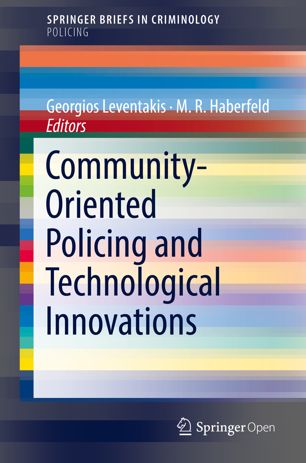

Most ebook files are in PDF format, so you can easily read them using various software such as Foxit Reader or directly on the Google Chrome browser.
Some ebook files are released by publishers in other formats such as .awz, .mobi, .epub, .fb2, etc. You may need to install specific software to read these formats on mobile/PC, such as Calibre.
Please read the tutorial at this link. https://ebooknice.com/page/post?id=faq
We offer FREE conversion to the popular formats you request; however, this may take some time. Therefore, right after payment, please email us, and we will try to provide the service as quickly as possible.
For some exceptional file formats or broken links (if any), please refrain from opening any disputes. Instead, email us first, and we will try to assist within a maximum of 6 hours.
EbookNice Team

Status:
Available4.5
30 reviewsThis Brief presents new approaches and innovative challenges to address bringing technology into community-oriented policing efforts. “Community-oriented policing” is an approach that encourages police to develop and maintain personal relationships with citizens and community organizations. By developing these partnerships, the goal is to enhance trust and legitimacy of police by the community (and vice versa), and focus on engaging the community crime prevention and detection efforts for sustainable, long-term crime reduction.
The contributions to this volume emphasize how technological innovations can advance community-oriented policing goals, such as:
-Strengthening community policing principles through effective and efficient tools, procedures and approaches
- Accelerating communication between citizens and police forces
- Early identification, timely intervention, as well as better crime reporting, identification of risks, unreported and undiscovered crime through the communityContributions to this volume were developed out of the Next Generation Community Policing (NGCP) International Conference was co-organized by nine contributing research and development projects, funded by the Horizon 2020 SECURITY Program of the European Commission. It will be of interest to researchers in criminology and criminal justice, as well as related fields such as sociology, public health, security, IT and public policy. This book is open access under a CC BY license.